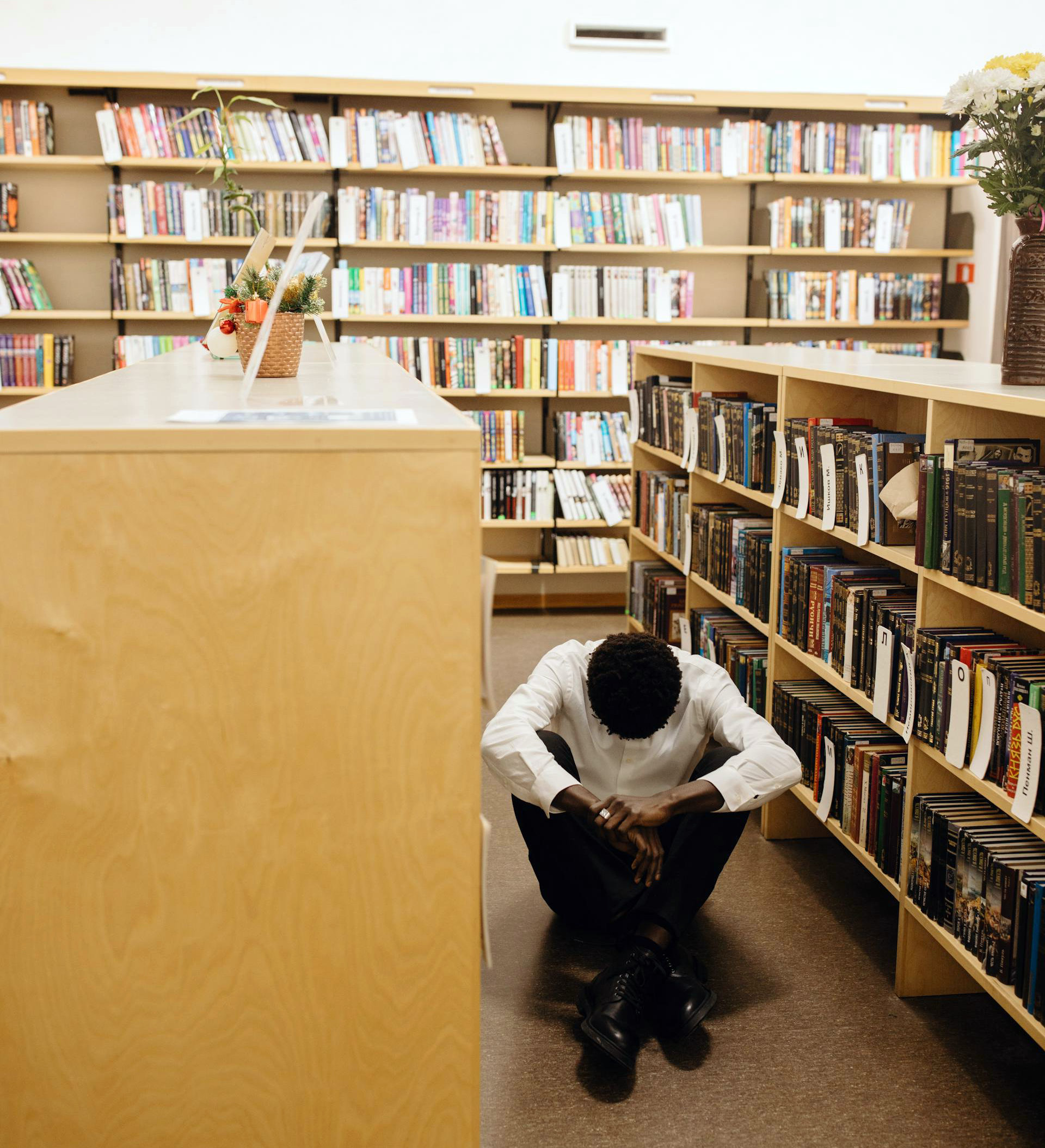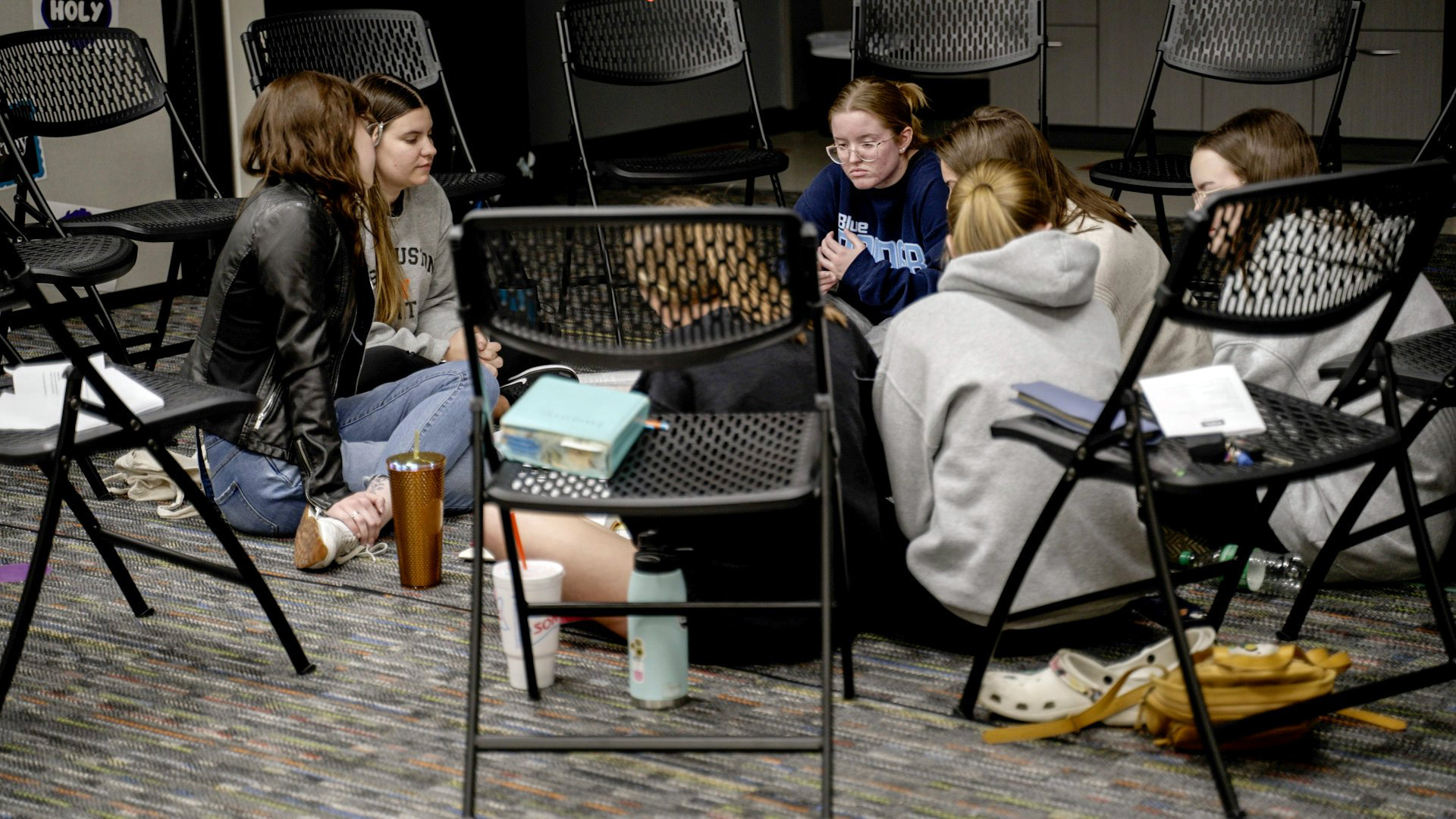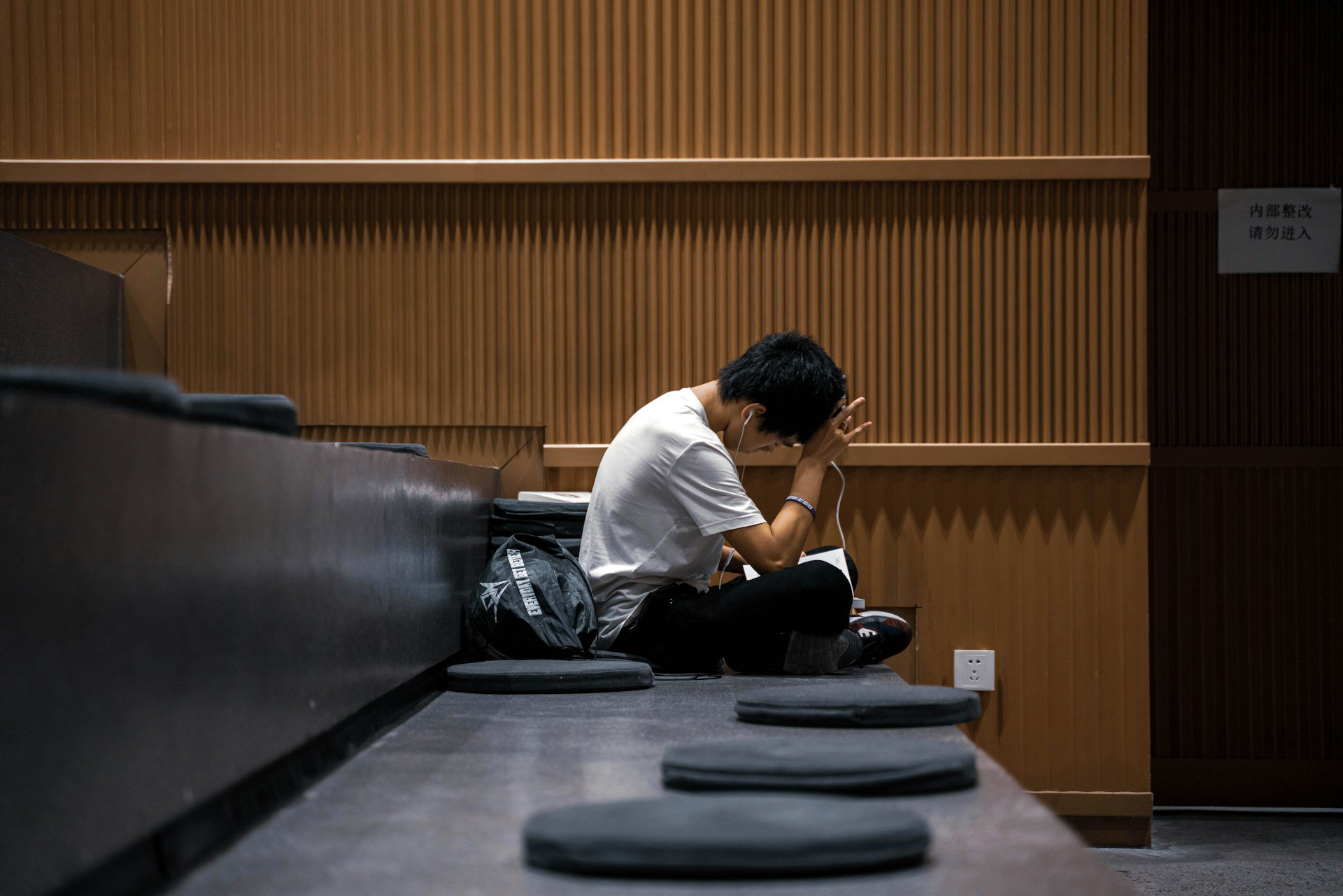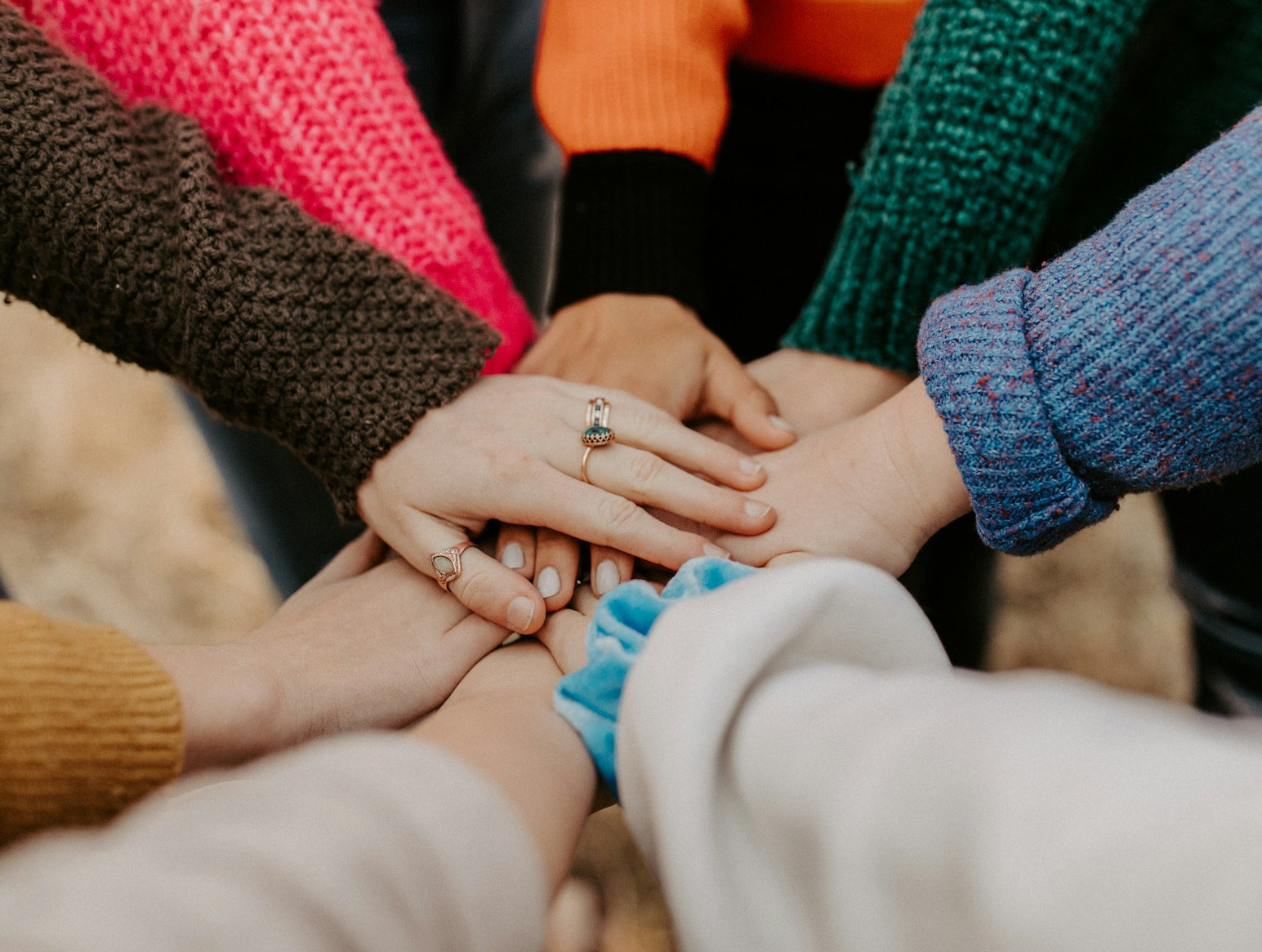The escalating mental health crisis among college students, marked by rising rates of depression, anxiety, and suicide, underscores the urgent need to address the question of how many students struggle with mental health.
Facing intense academic pressure, social expectations, and personal growth challenges, students navigate a landscape where these stressors often go unaddressed.
This article explores the scope of these issues, highlighting key statistics and the profound impact of academic pressure, while emphasizing the critical need for supportive measures to help students thrive.
Alarming Statistics on College Student Mental Health
Recent 2025 data paints a stark picture of mental health struggles among college students.
Approximately 47% of students report depression that impairs daily functioning, with rates increasing steadily over the past decade. Nearly 68% experience overwhelming anxiety, and 82% face significant stress.
Alarmingly, 1 in 4 students has a diagnosed mental illness, yet 50% say their college is unaware of their condition, and many do not seek professional help. Suicide remains the second-leading cause of death among college students, with incidents continuing to rise.
These statistics highlight a silent crisis, worsened by academic pressures. For example, over 50% of students find academics traumatic, and the demands of coursework, group projects, and exams deepen feelings of isolation and anxiety.
Without intervention, these challenges can lead to academic failure, withdrawal, or tragic outcomes, underscoring the need for systemic change. However, in order to intervene, we must first examine the factors that contribute to these challenges.
Factors Contributing to Mental Health Struggles
The mental health crisis among college students is a multifaceted issue driven by a convergence of academic, social, financial, and environmental pressures.
These challenges create a perfect storm, where students are expected to excel academically, maintain social connections, and navigate newfound independence, all while grappling with limited mental health resources and societal stigma.
Below, we explore the key factors contributing to this crisis, highlighting the complexities and offering insights into how colleges can better support their students.
Academic Pressures: The Weight of Expectations
 The academic environment in college is often cited as the primary source of stress for students. The expectation to achieve high grades, manage rigorous coursework, and prepare for competitive job markets places immense pressure on students.
The academic environment in college is often cited as the primary source of stress for students. The expectation to achieve high grades, manage rigorous coursework, and prepare for competitive job markets places immense pressure on students.
Group projects, tight deadlines, and high-stakes exams amplify this pressure, leaving students feeling overwhelmed. Additionally, the fear of failure, whether in a single assignment or in securing a future career, can lead to chronic stress, contributing to anxiety and depression.
Competitive Academic Culture
For many, the academic calendar, with its intense periods of exams and assignments, leaves little room for rest or recovery, fostering burnout.
The competitive nature of higher education further exacerbates mental health struggles. Students often feel pitted against their peers in a race for top grades, prestigious internships, or admission to graduate programs.
This culture of comparison, intensified by social media and societal expectations, can erode self-esteem and heighten anxiety.
A vast majority of students identify education as their primary stressor, with second-year students particularly vulnerable as they face advanced coursework and career exploration.
The pressure to attend elite institutions or secure high-paying jobs adds another layer of stress, particularly for students who feel they must justify the financial investment in their education.
Transition to Advanced Learning
For many students, the transition from high school to college introduces a steep learning curve. The shift to self-directed learning, coupled with larger class sizes and less personalized instruction, can leave students feeling unprepared.
This is especially true for first-year students, who may struggle to adapt to new academic expectations while navigating independence for the first time.
The lack of adequate academic support systems, such as tutoring or mentorship programs, can intensify feelings of inadequacy, contributing to mental health challenges.
Social Pressures: Navigating Relationships and Isolation
Social dynamics play a significant role in college students’ mental health. The expectation to form new friendships, maintain romantic relationships, or participate in extracurricular activities can be daunting, particularly for students transitioning from familiar high school environments.
Frayed or strained social connections, whether due to distance from family or conflicts with peers, contribute to feelings of loneliness and isolation.
Students report feeling isolated at some point during their college experience, which can exacerbate symptoms of depression and anxiety.
Impact of Social Media

Social media amplifies social pressures by creating unrealistic expectations of success and happiness. Students often compare their lives to curated online personas, leading to feelings of inadequacy or exclusion.
The pressure to maintain an active social presence, both online and in person, can be exhausting, particularly for introverted students or those struggling with social anxiety.
This constant comparison can erode mental resilience, making it harder for students to cope with other stressors.
Cultural and Identity-Based Challenges
Students from underrepresented groups, including racial/ethnic minorities or those identifying as LGBTQIA+, often face additional social stressors. These may include discrimination, microaggressions, or a lack of cultural representation on campus.
For example, 52% of Latino and 48% of Black students report financial stress compounded by academic and social pressures, yet cultural stigma may prevent them from seeking help. These identity-based challenges can create a sense of alienation, further impacting mental health.
Financial Stress: The Burden of Costs and Debt
Financial concerns are a significant contributor to mental health struggles, with 80% of college students reporting stress related to finances. Rising tuition costs, coupled with the pressure to balance part-time work and academic responsibilities, create a precarious situation for many.
The fear of accumulating student loan debt, which averages over $30,000 per borrower in the U.S., looms large, particularly for students from low-income backgrounds.
This financial strain can lead to heightened anxiety and depression, as students worry about their ability to afford college or secure a job that justifies their investment.
Impact on Non-Traditional Students
Non-traditional students, such as those who are older, working full-time, or supporting dependents, face unique financial challenges.
These students often juggle multiple roles, including employee, parent, or caregiver, which can limit their time and energy for academic pursuits.
The lack of flexible scheduling or childcare options on many campuses exacerbates their stress, making it harder to access mental health support when needed.
Barriers to Seeking Help: Stigma and Access Issues
Despite the prevalence of mental health struggles, many students face significant barriers to seeking help. Stigma remains a major obstacle, with students fearing judgment from peers, faculty, or family.
Only 7% of students with mental health concerns seek professional help, often due to embarrassment or the belief that they should “push through” their struggles.
Additionally, access to mental health resources is limited on many campuses, with 67% of colleges reporting increased demand for services but insufficient staff to meet it.
Long wait times, lack of culturally competent care, and financial barriers further deter students from seeking support.
Fear of Academic Repercussions

Some students avoid mental health services due to concerns about academic repercussions, such as falling behind in coursework or jeopardizing their scholarships.
The pressure to maintain a perfect academic record can discourage students from prioritizing their mental health, leading to a cycle of worsening symptoms and burnout.
This is particularly true for high-achieving students, who may feel that admitting to mental health struggles undermines their identity as successful scholars.
Inadequate Campus Resources
While many colleges have expanded mental health services in recent years, the demand often outstrips supply. Students report frustration with long waitlists, limited counseling sessions, or a lack of specialized care for conditions like eating disorders or substance use.
Non-traditional students, who may have less flexibility in their schedules, face additional barriers in accessing campus resources, further exacerbating their mental health challenges.
Solutions to Support College Students’ Mental Health
The mental health crisis among college students demands urgent and comprehensive action from institutions.
Academic, social, financial, and environmental pressures converge to create a challenging environment, and expecting students to navigate these struggles alone is unsustainable.
Colleges must adopt proactive, flexible, and empathetic strategies to address the question of how many college students struggle with mental health, fostering environments that prioritize well-being alongside academic success.
Below, we outline actionable solutions, emphasizing institutional responsibility, individual strategies, and systemic changes to support students effectively.
Institutional Responsibility: Building a Supportive Framework

Colleges bear a critical responsibility to recognize the multifaceted nature of mental health challenges and implement robust support systems.
The conventional approach to academic rigor, which frequently places performance above well-being, is growing increasingly out of sync with the needs of today’s students.
This is driven in part by overstimulation from the widespread use of technology and unprecedented access to information, among other compelling factors.
By fostering a culture of empathy and flexibility, institutions can mitigate the impact of stressors such as academic pressure, financial strain, and social isolation, enabling students to thrive both academically and personally.
To achieve this, colleges must move beyond reactive measures and adopt proactive strategies that address mental health at every level of the student experience.
This includes rethinking academic policies, expanding access to resources, and normalizing mental health conversations. By integrating support into the fabric of campus life, institutions can create a safety net that empowers students to seek help without fear of stigma or academic repercussions.
Flexible Academic Policies
Rigid academic structures often exacerbate stress. Colleges can alleviate this by offering flexible policies such as pass/fail grading, hybrid learning options, part-time enrollment, and project-based assessments.
These alternatives allow students to tailor their academic experience to their mental health needs. For example, pass/fail grading reduces the pressure of achieving perfect scores, while hybrid learning accommodates students balancing work or family responsibilities.
Additionally, policies like extra time for assignments, mental health days, and full-refunded withdrawals at term’s end empower students to prioritize well-being without sacrificing their education.
Expanded Mental Health Services
The demand for mental health services on campuses has surged, with a massive number of colleges reporting increased need but insufficient resources.
To address this, institutions must invest in expanding counseling services, including hiring more licensed counselors and offering telehealth options for greater accessibility. Telehealth is particularly beneficial for non-traditional students or those with limited campus access.
Colleges should also ensure culturally competent care to support diverse student populations, as minority students often face unique stressors but underreport due to stigma.
By reducing wait times and increasing session availability, colleges can ensure that students currently seeking help grow significantly, catching issues before they escalate into crises.
Destigmatization Campaigns

Stigma remains a significant barrier, with many students avoiding help due to fear of judgment or academic consequences. Colleges can combat this through de-stigmatization campaigns, such as workshops, peer-led support groups, and faculty training on mental health awareness.
These initiatives normalize seeking help and foster a campus culture where mental health is openly discussed.
For instance, peer groups provide safe spaces for students to share experiences, while faculty training equips professors to recognize distress signals and refer students to resources.
Campaigns can also leverage social media to reach students where they are, countering the negative effects of online comparison culture.
Financial Support Programs
Colleges can alleviate financial stress among college students by offering scholarships, emergency funds, and financial literacy programs to help students manage costs and debt.
Emergency funds can cover unexpected expenses, such as medical bills or housing, preventing financial crises from derailing academic progress. Financial literacy programs empower students to budget effectively, reducing anxiety about tuition or loan repayment.
Holistic Support Systems
Mental health support should be woven into every aspect of campus life, from academic advising to residence life and career services. Advisors can screen for mental health concerns during routine check-ins, while resident assistants can be trained to identify struggling students.
Career services can offer stress management workshops to ease anxieties about job prospects. By creating a comprehensive safety net, colleges ensure that students encounter support at multiple touchpoints, increasing the likelihood of early intervention.
This holistic approach addresses the interconnected nature of academic, social, and financial stressors, providing a unified framework for student well-being.
Engaging Families and Communities
Involving families, particularly for traditional students who often remain dependent on parents, can enhance mental health outcomes.
With student consent, colleges can encourage parental involvement in treatment, such as attending counseling sessions or receiving updates on progress.
Parents can provide critical historical context, support recovery, and ensure continuity of care during school breaks. For example, educating parents about early signs of mental health issues equips them to advocate for their child’s needs.
Community-based programs, like parent workshops or family therapy options, can further strengthen this support network, particularly for students living off-campus or returning home during breaks.

Colleges can also partner with local organizations to extend mental health resources beyond campus. Community mental health clinics, for instance, can supplement on-campus services, especially for students without insurance or those needing specialized care.
These partnerships are vital for non-traditional students, who may face barriers accessing campus resources due to work or family commitments. By fostering these connections, colleges create a broader ecosystem of support that addresses diverse student needs.
Individual Strategies: Empowering Students
While institutional support is crucial, students can also adopt personal strategies to manage mental health challenges. The high prevalence of stress underscores the need for practical tools that students can integrate into their daily lives.
These strategies, while not a substitute for professional help, can complement institutional efforts and build resilience. Equipping students with these tools requires education and access to resources.
Colleges can offer workshops or online modules to teach these skills, ensuring students feel empowered to take charge of their mental health.
However, with only 7% of students currently seeking professional help, institutions must actively promote these strategies to reach a wider audience.
- Time Management Techniques: Using planners, apps, or prioritization methods to organize academic and personal responsibilities, reducing overwhelm.
- Study Groups and Peer Support: Collaborating with peers to share workload and foster a sense of community, alleviating isolation.
- Mindfulness and Relaxation Practices: Engaging in meditation, yoga, or deep-breathing exercises to manage anxiety and improve focus.
Seeking Mental Health Support: Accessing counseling or therapy, either on-campus or through telehealth, to address underlying issues. - Physical Health Maintenance: Prioritizing sleep, nutrition, and exercise to bolster mental resilience, as 87% of students report poor sleep due to stress.
Faculty and Staff Training: A Frontline Defense
Faculty and staff are often the first to notice signs of mental health struggles, yet many lack the training to respond effectively. Colleges should mandate regular training on recognizing symptoms, initiating conversations, and referring students to resources.
For example, a professor might notice a student’s declining attention or having panic attacks on the premises which could signal anxiety. Training equips them to approach such situations with sensitivity and connect students to support.
This frontline defense is critical, as early intervention can prevent issues from escalating into crises. Training should also emphasize cultural competence to address the unique needs of diverse student populations.
Faculty can play a role in destigmatizing mental health by incorporating wellness discussions into classrooms, such as encouraging breaks or sharing resources.
By embedding mental health awareness into the academic experience, colleges create a more supportive environment for all students.
Policy and Systemic Changes
Beyond campus-level solutions, broader systemic changes are needed to address the mental health crisis. Policymakers should advocate for increased funding for higher education mental health programs, ensuring colleges have the resources to expand services.
State and federal initiatives can also promote insurance coverage for mental health care, reducing financial barriers for students. Additionally, accreditation bodies can incentivize colleges to prioritize mental health by including wellness metrics in their evaluations.
At the institutional level, colleges should conduct regular mental health assessments to track student needs and evaluate program effectiveness.
These assessments can inform resource allocation and policy adjustments, ensuring support keeps pace with demand. By advocating for systemic change, colleges can create a sustainable framework for addressing mental health challenges.
A Call to Support Student Well-Being
The mental health crisis among college students, with depression, anxiety, and suicide rates soaring, demands urgent action.
With 1 in 4 students facing a mental illness and many going untreated, colleges must prioritize accessible resources, flexible policies, and early intervention to address how many college students struggle with mental health.
By dismantling stigma and creating supportive systems, we can empower students to navigate their challenges and build brighter futures. Parents, faculty, and administrators must act together to ensure no student faces this crisis alone.
